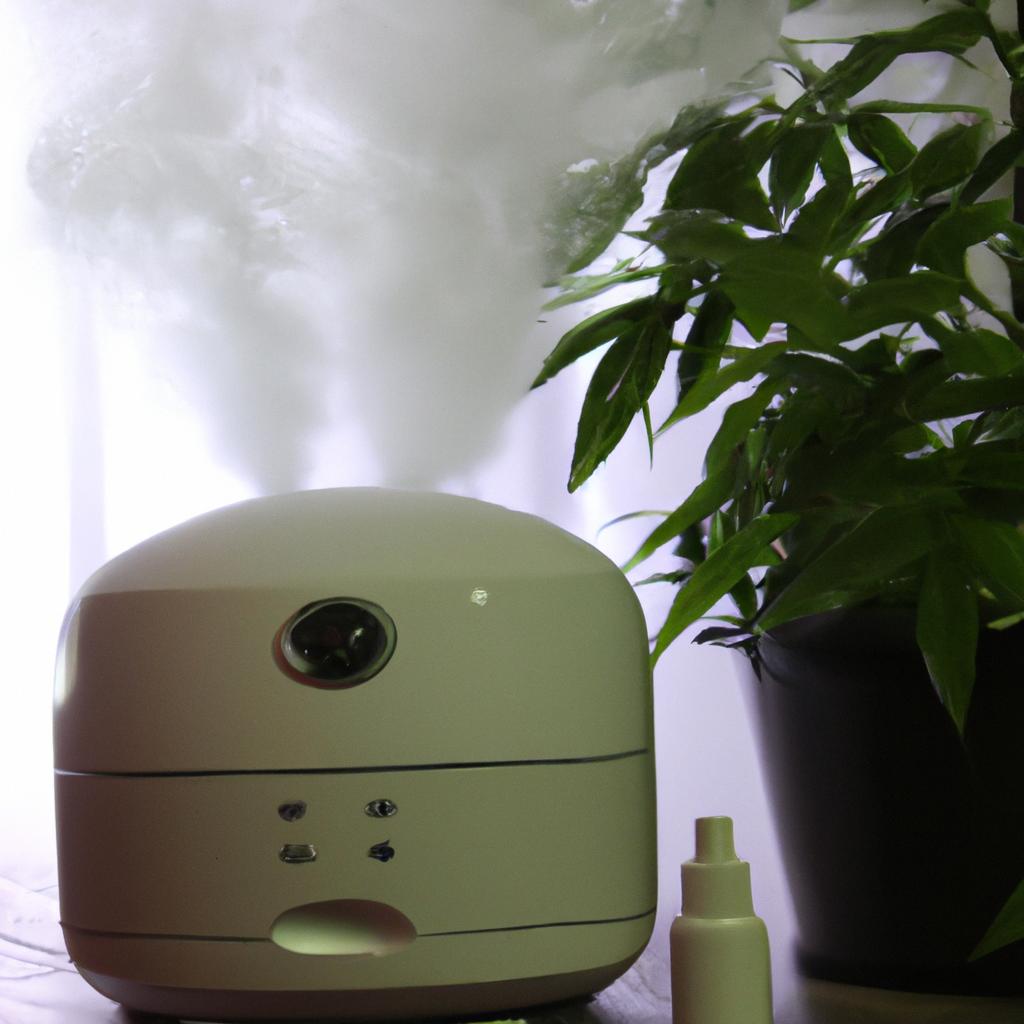Do you use a humidifier in your home or office to combat dry air?
It is generally safe to have a humidifier near electronics, but with some precautions. To minimize potential risks, follow these guidelines:
1. Maintain appropriate humidity levels: Keep the humidity level between 30-50% to prevent condensation on electronic devices, which can cause short circuits or corrosion.
2. Positioning: Place the humidifier at a safe distance from electronics (at least 3-5 feet away) to avoid direct exposure to moisture.
3. Use a cool-mist humidifier: Cool-mist humidifiers are less likely to cause condensation compared to warm-mist ones.
4. Regular maintenance: Clean and maintain the humidifier regularly to prevent mold and bacteria growth, which can affect air quality and potentially harm electronics.
5. Monitor the environment: Keep an eye on the room’s temperature and humidity levels, and adjust the humidifier settings accordingly.
6. Use a surge protector: Plug electronics into a surge protector to safeguard them from potential power fluctuations caused by the humidifier.

By following these precautions, you can safely use a humidifier near electronics.**
If so, you may be wondering if it’s safe to have it near your electronic devices.
While humidifiers can provide numerous health benefits, they also emit moisture which could potentially damage electronics.
In this article, we’ll explore whether or not it’s safe to use a humidifier near electronics and what precautions you can take to protect your devices.
Many people rely on electronic devices for work or leisure and don’t want to risk damaging them by using a humidifier nearby. However, others argue that the benefits of using a humidifier outweigh the potential risks.
With conflicting opinions on the matter, it can be difficult to determine what’s best for your situation. By examining the science behind humidity and electronics, as well as expert recommendations, we hope to provide clarity on this important topic.
What Is A Humidifier?
A humidifier is a device that adds moisture to the air.
It works by emitting water vapor or steam into the atmosphere, increasing the humidity level of a room or an entire building.
Humidifiers come in different sizes and types, from small portable units to larger ones that are installed permanently in homes and offices.
Using a humidifier has several benefits, including relief from dry skin, sinuses, and throat.
It can also reduce static electricity and help preserve wooden furniture.
However, it’s important to use a humidifier correctly as improper use can lead to potential hazards.
Potential Hazards Of Using A Humidifier
With the increasing popularity of humidifiers, many people are unaware of the potential hazards that come with using this device. Although they can provide relief for dry skin and respiratory issues, there are certain risks associated with their use.
Firstly, having a humidifier near electronics could pose a danger. The moisture released by these devices can cause damage to electronic equipment such as laptops, televisions, and phones.
In addition, if the water in the humidifier is not changed regularly, it can become a breeding ground for mold and bacteria which may also harm electronics.
Therefore, it is recommended to keep a safe distance between your humidifier and any electronic devices.
To ensure the safety of both your electronics and yourself, proper placement of your humidifier is crucial.
By placing your humidifier on a flat surface away from electronics and ensuring that it is elevated to avoid water damage to floors or carpets, you can reduce the risk of any accidents occurring.
Additionally, be sure to follow the manufacturer’s instructions carefully when operating your device to guarantee safe usage.
Recommended Humidifier Placement
When it comes to placing a humidifier in your home, it’s important to consider the location. While many people may be tempted to place their humidifier near electronics, there are some considerations to keep in mind.
First and foremost, water and electronics don’t mix well.
If your humidifier is placed too close to electronics, there is a risk of water damage or electrical shock.
Additionally, if the humidity level in your home is too high, it can cause condensation on your electronics which can also lead to damage.
To ensure your humidifier operates safely and effectively, consider these recommended placement tips:
1. Place the humidifier at least 3 feet away from any electronics.
2. Avoid placing the humidifier on top of any furniture that could be damaged by water.
3. Keep the humidifier away from doors or windows where drafts could interfere with its operation.
4. Always place the unit on a stable surface to prevent tipping or spilling.
Proper placement of your humidifier not only protects your electronics but also maximizes its benefits for your home’s air quality.
As you enjoy the benefits of using a humidifier in your home, remember that proper maintenance and care will help extend its lifespan and ensure optimal performance.
In the next section, we’ll dive into key steps for keeping your humidifier clean and functioning at its best.
Humidifier Maintenance And Care
Now that you know where to place your humidifier, you might be wondering whether it’s safe to have it near electronics.
While a humidifier can provide many benefits for your health and home, it’s important to take precautions when using one around electronic devices.
Firstly, you should avoid placing your humidifier directly on top of or next to any electronics.
The mist produced by the humidifier can settle on the surfaces of these devices and cause damage or even short circuits.
Instead, try to keep a distance of at least 3 feet between the humidifier and any electronic equipment.
Additionally, make sure that any cords or electrical outlets are not in contact with water from the humidifier. When it comes to maintaining and caring for your humidifier, there are a few extra steps you can take if you plan on using it near electronics.
Regularly clean and disinfect your humidifier according to the manufacturer’s instructions to prevent mold and bacteria growth that could harm both your health and electronic devices.
You should also use distilled water instead of tap water in your humidifier as this is less likely to contain minerals that can leave residue on electronics.
By following these guidelines, you can safely enjoy the benefits of a humidifier without causing damage to your electronic devices.
Just remember to always prioritize safety and maintenance when using any household appliance.
Conclusion
In conclusion, having a humidifier near electronics can be safe as long as proper precautions are taken. It is important to understand the potential hazards associated with using a humidifier, such as water damage and electrical shock.
However, by following recommended placement guidelines and practicing regular maintenance and care, it is possible to mitigate these risks.
When placing a humidifier near electronics, it is crucial to ensure that there is adequate space between the two.
This will prevent any water from accidentally spilling onto electronic devices and causing damage.
Additionally, it is important to regularly clean and disinfect the humidifier to prevent the growth of bacteria or mold that could potentially harm both electronics and human health.
Overall, with responsible use and proper maintenance, having a humidifier near electronics can provide numerous benefits such as improved air quality and reduced risk of respiratory problems.
As someone who values their health and wellbeing, I believe that understanding how to safely use a humidifier in conjunction with electronics is an important aspect of maintaining a healthy living environment.




